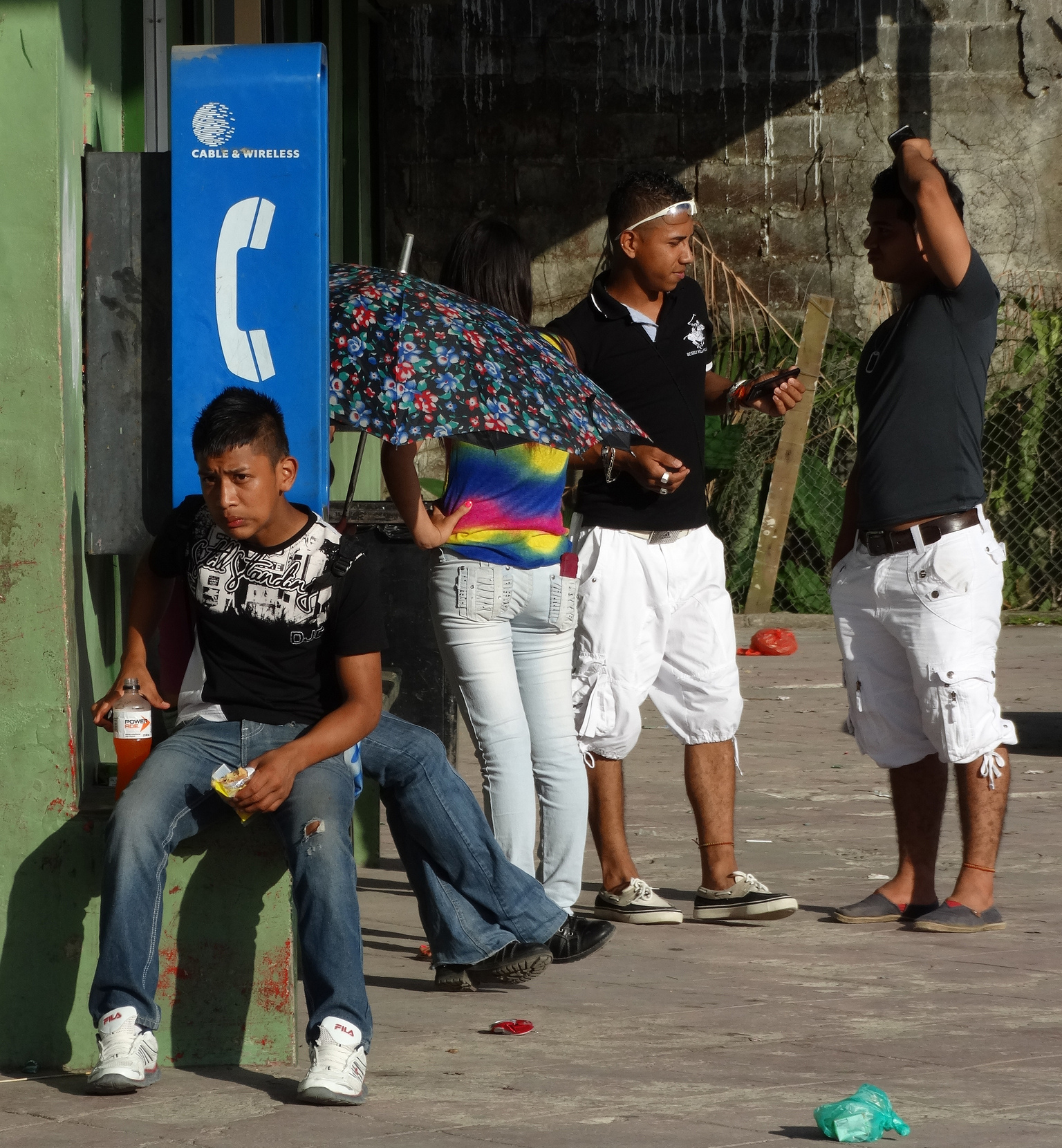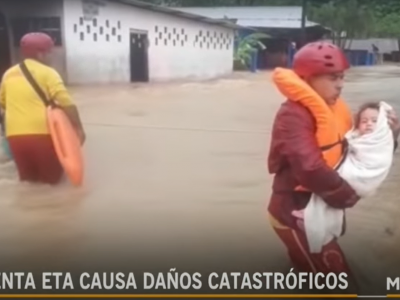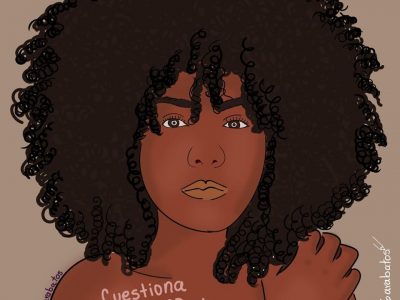
Street Scene – El Valle de Anton. Photography by Adam Jones, published under the Creative Commons license.
How is Panama dealing with the arrival of large groups of people from its neighboring countries? How are foreigners behaving in the country? With the influx of many immigrants from other Latin American countries and the clashes that come with coexistence, Panama is undergoing at times difficult multicultural transformation. Panamanian social media outlets are full of numerous anecdotes, attacks, and accusations, but also gratitude, clarifications, and apologies.
Since its inception, Panama has been a country of transition. The narrowness of its territory caused great minds to think up a canal that would unite two oceans even when technology did not yet allow for it. A product of its prime location and some chance happenings throughout history, Panama has arrived at the present with a stable economy, but a confusing past. As such, Panamanians tend to see themselves as originating from everywhere and nowhere at the same time. Geographically, Panama is Central America, and culturally, it is the Caribbean. Nonetheless, historically, the ties that bind Panama to South America are strong, as it was part of the Great Colombia – the former republic that sought to bring together Panama with Venezuela, the New Granada (present-day Colombia), and Ecuador.
These various locations have made Panama a meeting place for many groups, and immigration has been a vital part of the country as a result. Nevertheless, in recent years, the political, social, and/or economic instability of its neighboring countries have increased the number of immigrants, forcing Panamanians to face the challenges of coexistence more intensely.
Many are reacting with rejection, particularly with immigration from Venezuela and Colombia. Therefore, Panama, which was always proud of being a “melting pot”, or in Spanish, a “crisol de razas” (in fact, it's the name the government gave its program seeking the legalization of a large number of foreigners in the country), is grappling with the question, “What to do with the foreigners?” as an everyday topic of conversation.
A number of Facebook groups have been launched to discuss the matter, such as “We don't want you in Panama, Nilka Janeth“, which was created following a comment by a Facebook user named Nilka Janeth claiming that jobs created by the Panama Canal would remain in the hands of the foreigners instead of the Panamanians. The true identity behind the user's name is still under discussion, but the explosive effect continued to run its course.
From there, the group, which has a little over 7,000 followers, has gone on to report supposed damage done by foreigners in the country and called for a more tightly controlled immigration system. Other groups have popped up under the slogan “No More Melting Pot“. These groups say that their goal is to maintain the country's tranquility and prevent the spread of illicit activities, such as street vending, that they say foreigners have a hand in. Another problem seen through these groups’ eyes is the participation of foreigners in crime. For these Panamanian netizens, already uncomfortable with the presence of foreign workers, the nationality of those who break the law becomes important. In one of the group's posts, people comment on the kidnapping of a girl who, according to the press, was taken by her nanny, a Colombian national:
Aqui uno mas de los frecuentes casos perpetrados por foráneos del mal vivir consecuencia del mal filtro en el tema migratorio.
Gracias a la efectiva acción de la [Dirección de Investigación Judicial] se logró recuperar a una menor de dos años en este caso fue aprehendida una mujer de nacionalidad colombiana.Pero si nos levantamos como ciudadanos en contra de estos actos y exigimos una politica migratoria responsable nos llaman xenófobos y racistas.
Here is yet another of the frequent cases of evil perpetrated by outsiders living due to a poor filter on the immigration issue.
Thanks to the effective action of the [judicial investigation] a 2-year-old was recovered. In this case, a woman of Colombian nationality was apprehended.
But if we rise up as citizens against these acts and demand a responsible immigration policy, we are called xenophobic and racist.
From the point of view of immigrants, the writing of Venezuelan native Enrique Vásquez has circulated and been discussed for quite some time. He seeks to explain the behavior of some Venezuelans in Panama, who are accused of being racist:
La mezcla de razas en Venezuela es muy parecida a la de Panamá. Somos descendientes de los indios originarios, mezclados con los negros africanos y antillanos, que a su vez se mezclaron también con los españoles. Dicho de otro modo, el “venezolano puro”, al igual que el “panameño puro”, puede ser de un color cualquiera ubicado entre el blanco europeo y el negro africano.
Sin embargo, hoy en día en Venezuela pasa algo que difícilmente ocurra en cualquier otro país del mundo. Los niveles de inseguridad son tan alarmantes que nos hemos acostumbrado a estar en las calles con miedo; con profundo y genuino miedo. La paranoia y el terror son algo del día a día.
The mixture of races in Venezuela is very similar to that of Panama. We are descendants of the native Indians, mixed with Africans and West Indian blacks, who in turn were also mixed with the Spaniards. In other words, the “pure Venezuelan”, much like the “pure Panamanian”, can be any color between the white European and the black African.
Nonetheless, today in Venezuela something is happening that hardly happens in any other country in the world. The levels of insecurity are so alarming that we have become accustomed to walking the streets in fear, deep and genuine fear. Paranoia and terror are an everyday thing.
The complex discussion on racism in Venezuela has also been part of the comments that continue to appear under the post, like this one posted by Anna Gabriella Quiroz:
Lo siento, pero soy venezolana, me han [asaltado] ya 5 veces de distintas formas, y no acepto esto. Esto es una manera (un poco infantil a mi parecer) de justificar el racismo internalizado que SI, si existe en nuestro país como en gran parte del mundo […]
I'm sorry, but I am Venezuelan, I have been [attacked] now 5 times in different ways and I do not accept this. This is (in my opinion a bit of a childish) way to justify internalized racism that YES, yes, exists in our country as it does in much of the world […]
The discussion on immigration continues on Twitter, where some users have communicated their dissatisfaction with the systematic legalization of foreigners:
@IsraelReyesC venezolanos, colombianos, nicaragüenses, dominicanos y cubanos son una carga social y económica para nuestro país
— Amanecer Dorado (@AmanecerDoradoP) January 4, 2015
Venezuelans, Colombians, Nicaraguans, Dominicans, and Cubans are a social and economic burden on our country
Traditional media outlets are also taking part in the debate. Sports commentator Juan Carlos Tapia touched on the subject, and media outlet La Estrella de Panamá asked passersby questions about the program that elicited reactions for and against the arrival of immigrants to the country. The opinions in favor recognize the difficulties that might have encouraged people to leave their country of origins and also underline the positive aspects of migration to the country:
Estoy de acuerdo [con el programa “Crisol de Razas”] porque creo que es una oportunidad para el país de poder traer otras personas que también [puedan] compartir de sus cualidades, desarrollarse dentro del país.
I agree [with the ‘Crisol de Razas’ program] because I think it's a good opportunity for the country to be able to bring other people who can also share their qualities, and grow here.
Similarly, in response to the campaigns of rejection, political movements such as the “Arena” group, which seeks to support immigrants residing in Panama and whose objective is “to maintain a unity of all Nations”, have popped up.







5 comments
It is sad to see such a beautiful country blame others for their problems. The only people to blame for the laws are the people who elected the officials who made the laws. I say move forward and always improve. When and if the economy starts to slow down, the first to be blamed will be outsiders, history always repeats itself. This situation has been played out across the planet for thousands of years.